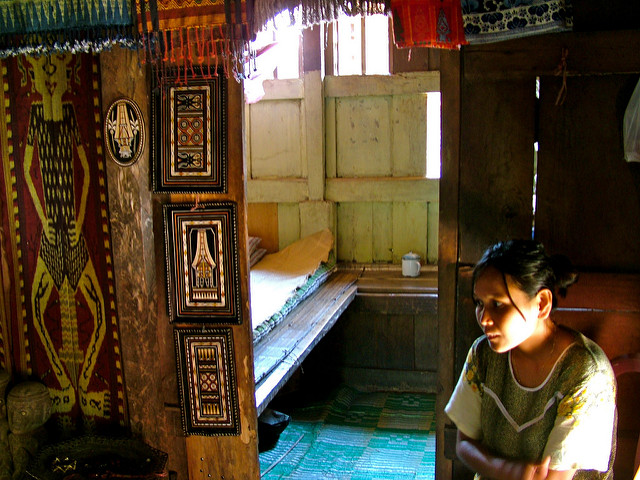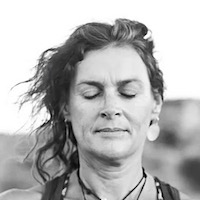Traveling is an interesting thing.
We learn about a new culture and what makes them tick, and we can learn a lot about ourselves too, and how we react to challenges, differences, and change.
More importantly, perhaps, we can open our eyes and see our own culture and country in a different light.
For many people, they see how extraordinarily lucky we are materially and come home with a new-found appreciation of their wealth, however modest it may be. But sometimes, our traveling experiences lead us to see a lack of wealth in our culture, and we begin to see what is missing in our society.
I have had a strong affinity with Southeast Asia—actually, just Asia in general—since I was child. I’ve spent a good amount of time traveling and living in various parts, and my love of Asian culture has only become stronger. I have my regions and customs and those that don’t float my boat quite as much, but overall, I have a deep and abiding respect and heart connection to the region.
So much so, that I tend to struggle when I return to the sunny shores of Australia. Unlike many, I don’t think, “thank goodness, I’m back!” It’s not like I don’t appreciate how extremely fortunate I am to live in a country that is safe, affluent, and clean. But there’s something missing here, and also, I suspect, from a lot of other Western, affluent nations—and I’m not just talking about spectacular street food.
What I miss most about these countries I travel and spend time in, once I have returned home, is the connection to spirit that the people have.
Religion and spirituality are innate in these lands, whether they be Buddhist, Hindu, Muslim, Christian, or other—and whilst the level of devotion varies among the inhabitants, it still permeates the air and society with a deep sense of faith. There is a light in the eyes that is rarely replicated here in the West, the heart can be seen, and conversations with locals can turn to talks of “God” or “love.” A softness is at the heart of each conversation; a softness that filters down into the way life is led.
Yes, life can be hard for many in this part of the world, I’m not denying that, but their faith in something greater also leads them to look after extended family, to take in those less fortunate if they are able, and to live life with an acceptance and sense of joy even in the face of this harshness. There is life in their bones—they emanate rawness, vitality, and something slightly wild.
Then, I come home, and I see dullness. Conformity. Dead eyes and hearts in fear. Selfishness and lack of empathy and compassion.
Not from all of us, of course. Many here also have the inner faith that I’ve found more common elsewhere. But in our society, it’s best to leave it a little hidden. Show vulnerability, show softness, and soon, your bones will picked clean. And I question: why are we like this? Where have we, as a culture and society, gone so wrong that we have lost this natural, innate connection to source?
Have we become so governed and indoctrinated to live our lives a certain way that we can no longer see the connection between us and everything else?
Capitalism needs us to co-operate—to work diligently and efficiently—to produce commodities which generate income for the owners and a wage for those working. It needs us to consume, so the wheels of production can keep turning. And it needs us to believe that money is important for our happiness and that material objects will reduce our existential suffering. Is it this political paradigm that is causing our disconnection to spirit and each other? It’s not a new concept, relating to money and financial gain as a god and a determinant of happiness, but is this why so many of us seem to operate as zombies with our inner light extinguished?
Taking my mother to Indonesia a couple of years ago was an eye opener for both myself and her. She had never witnessed village life, having only ever traveled in Asia on carefully orchestrated tours.
She saw how normal, small town Indonesians lived, and she was a little confronted, perhaps even a little appalled. Firstly, she saw their lack of material wealth (read no fancy furniture or flash houses) as abject poverty, when in reality they were living a comfortable, normal village existence—albeit materially deficient in Western terms.
Family all lived together, young and old, supporting each other. There was plenty of food, good sanitation, and an abundance of happiness and joy. In my eyes, they were wealthy.
But what really upset her was that they didn’t “work hard enough.”
In a very Western way, my lovely, kind-hearted mum thought these people should be somehow ensuring their financial security and increasing their material wealth. I pointed out that they lived a pretty fantastic lifestyle from my perspective, and while I know many of these people would like more monetary riches, I also didn’t think that would be willing to sacrifice what they had in order to get it. Struggling is no fun. And I have friends in Indonesia who do struggle. But when I talk to them about my life in Australia, and how I must live my life in order to survive there, they’re suddenly not so keen.
Yes, they’d like more, but they also realise what incredible richness they have in other areas of life. And this is something I have found all through the parts of Asia I have traveled, from India to Indonesia. Family, community, the general interconnectedness of life, and connection to something greater than themselves—this is what is considered important and life-affirming.
So again, I ask, where have we gone wrong?
What is it that causes me to harden in some way upon my return to the country of my birth? Why is it I feel a stronger connection to those of other nationalities and faiths, and can feel their compassion and empathy and love, whilst I can’t from my fellow countrymen?
I believe we need to question our political paradigms and our cultural beliefs that have caused us to place such great value on “work ethic,” on striving to accomplish and achieve and acquire. Because all it has done is disconnect us from what truly matters, which is each other and the world around us.
Without spirit, we live a life that is fragmented, shallow, and hollow. Let us reclaim our birthrights and live our lives with purpose, true to our hearts and our souls. Inspired, caring, compassionate, and loving. This, I believe, is the way of the future.
~
Author: Cassandra Pickel
Image: mattjlc/Flickr
Editor: Catherine Monkman
Copy Editor: Yoli Ramazzina
Social Editor: Yoli Ramazzina












Read 0 comments and reply